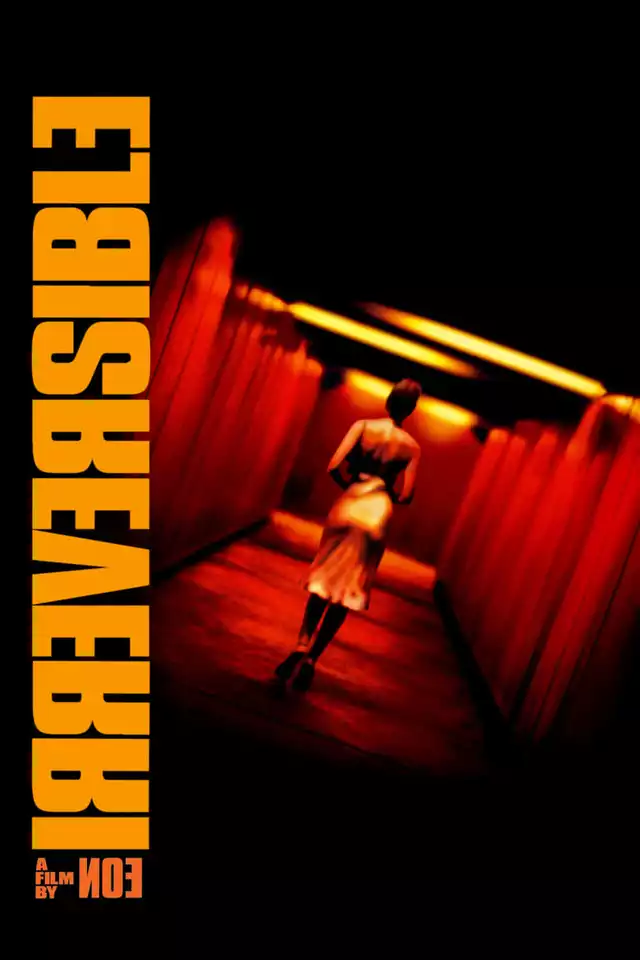Noe's style of filmmaking reminds me of the time when I didn't read the book for my literature class. I went in anyway, the teacher asked me about it, and I started winging it. Now, that didn't really happen, but that's the perfect example to describe how I imagine Noe's work ethic. - "You haven't read the book? What are you going to do?" "Oh, you'll see."
I'm not a fan of Noe's films. I appreciated 'Climax.' I thought that was a neat effort in expanding the cinematic frontiers without presenting too much of the usual garish shock value I've seen in Noe's other films. But other than 'Climax,' nothing I've seen from him appeals to me (I haven't seen 'Enter the Void'). 'Irreversible,' I knew it was going to be an uncomfortable watch. I had heard so much about its unflinching depiction of sexual violence. And I had prepared myself for that. Or so I thought. I found the infamous rape scene disturbing. But Noe cheated. What I mean by that is that, even though the scene got to me, it wasn't the result of impeccable filmmaking. It's just that no person with even the slightest amount of empathy in him would sit through it and not flinch.
The first thing I want to talk about is the cinematography, as that's the keyword here - filmmaking-wise, I'm not getting into the story and its themes. So, to put it harshly, Noe raped the art of the hand-held camera. I love the hand-held camera. It might look like the hand-held camera-work it's easy; a quick and cheap way to handle a particular scene, but I opine it's the reverse. I believe that there's nothing uglier in a film than a poorly choreographed hand-held camera-work. Here, while I think that in certain scenes, the ideas for the camera are ingenious (that ever-rotating camera in the beginning), they don't feel like they serve the story. It feels like Noe didn't understand his movie by the way he shot it. He didn't have to go that hard with the camera. - It's overkill to the worst degree. And yes, you can argue that the exaggerations with the camera come as means of parallelizing it with the tremendously sensitive content, but as I said, I think it's too much. It works to the film's disadvantage. It pulls you off the movie - You can't keep up with the movie when the rotating camera it's making you dizzy. And that's another thing. If I had been more naive, I'd think Noe's secret goal with his films is to provoke pain in the viewer. - I stopped watching 'Lux Aeterna' halfway through because that was obliterating my eyes. So, I think that the cinematography here is a complete mess. It's like they tried so hard to prove that they could go "balls to the wall" with it, for no reason at all. - Not appreciated!
The thing I enjoyed - yes, weirdly, there is an aspect here handled with the virtuosity of the greatest of professionals, and it's the factor that kept me constantly engaged with what I was watching, and was the acting. I find Vincent Cassel so charming. There's something about him, an all-consuming charisma that he manages to bring in every character he portrays. And here, he delivers nothing less than a thoroughly captivating performance.
With 'Irreversible,' Noe forces you to stare into the abyss of human darkened degradation. But, unfortunately, he leans heavily in shock value. And again, I can't get over the flaccid camera-work. It's unbelievable. What was he thinking? Neon-bathed visuals plus unusual camera-angles plus non-linear narrative equal guaranteed success? The scene where the ambulance takes Bellucci's all-beaten-up body (among others) was filmed so bad - you'd think a monkey was holding the camera. The biggest shock from this movie is what they do with the camera here. Anyway, 'Irreversible' is far from the worst film I've seen, and it's certainly not as bad as the most passionate haters of the movie make it sound to be, and yet, it's not the high art cinema its electrified fans will tell you it is.



eva0418z
4 y